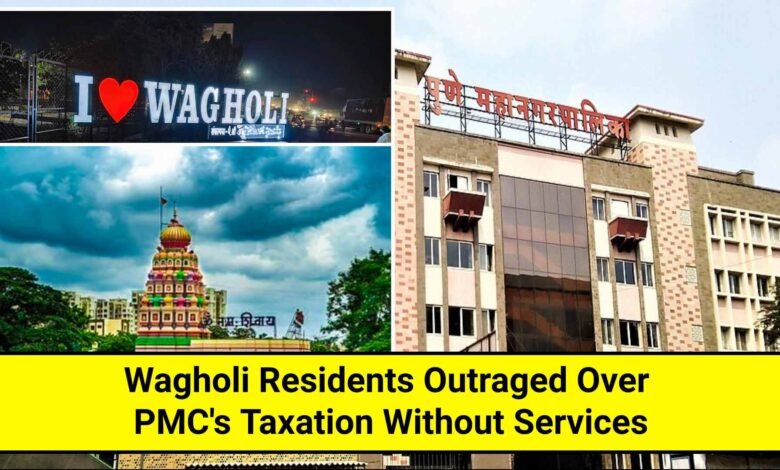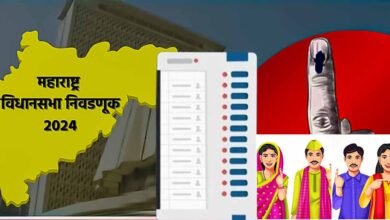Wagholi Residents Accuse Pune Municipal Corporation of Neglect Amid Rising Property Taxes
Wagholikars Protest Pune Municipal Corporation's Failure to Provide Basic Services Despite Imposing Multiple Taxes

Pune, Wagholi : Wagholi Residents Outraged as PMC Imposes Taxes Without Delivering Essential Services
Wagholi, a rapidly growing suburb of Pune, has been under the jurisdiction of the Pune Municipal Corporation (PMC) for the past two years. However, residents, known as Wagholikars, are raising their voices against what they describe as the PMC’s failure to provide basic services, despite imposing several taxes.
The frustration among Wagholi residents has been brewing for some time, as they continue to face daily challenges such as traffic congestion, inadequate drainage, and poor water quality. Despite these ongoing issues, the PMC has levied multiple taxes on property owners in Wagholi, including Water Tax, Sewerage Tax, Jal Labh Tax, and Jal NIS Tax, leaving many residents feeling that they are being unfairly burdened without receiving essential services in return.

Numerous protests have been staged by Wagholikars, with many expressing deep regret over the inclusion of their area into the Pune Municipal Corporation. “If basic amenities were not to be provided, then why was there any rush to include Wagholi in PMC?” questioned one frustrated resident during an interaction with local citizens.
As the situation worsens, residents’ anger continues to mount, with many wondering how long they will have to endure poor infrastructure and lack of services, even as they pay increasingly high taxes. The failure of the PMC to address these concerns is seen as a betrayal by those who had hoped for better governance and improved living conditions when Wagholi was incorporated into the corporation.
The daily struggles of Wagholikars are compounded by the rising costs imposed by the PMC, making their lives more difficult. The community is now calling for immediate action to address the glaring gaps in service delivery before their frustration reaches a boiling point.




